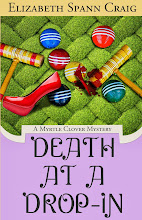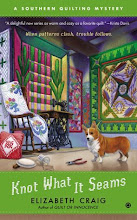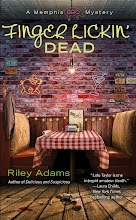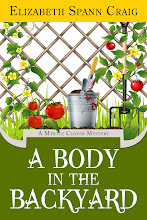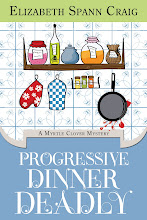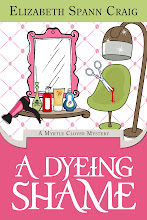 by Porter Anderson, @Porter_Anderson
Appointment With Death is Agatha Christie's travelogue-gone-wrong, set in the "rose red city of Petra." And some years ago, when I directed Christie's 1945 stage adaptation of it, I reached for Vivaldi.
I wanted some big, noisy, precisely orchestrated suspense to get my big, noisy, endlessly patient actors into an opening tableaux. And by setting this whole thing in the swamp-gassy gloom of a weird hotel lobby, I could also show off the smart elevator our designers had rigged up for the stage.
So I used the first movement of the Winter concerto from Vivaldi's Four Seasons. Sounds like the kind of blizzard that gets Mayor Bloomberg into trouble. Worked like a charm. We managed to get the "detestable" Mrs. Boynton into her seat right on the button of that string-section snowstorm every time. Image: Flickr, National Library NZ
But how I wish I'd had Q2 Music then. Because I'd have used something far more atmospheric, closer to the exotic locale. Petra, an ancient city carved from rock in Jordan, has little to do with Vivaldi's Europe. And I'd also like something less bombastic, more intimately sinister.
Something like composer Dohee Lee's "HonBiBaekSan (The Ritual of White Mountain)." After a very eerie, quiet start, she uses a beautiful woman's vocalise, throbbing percussion, queasy glissandi and electronically generated tones oozing through the air. Every sound, like Christie's characters, a suspect. If you don't see the audio file from Q2 here to click on, just go to this page at Q2 Music and scroll down to Dohee Lee's name. That's the amplified quartet Ethel playing it, in a live performance.
by Porter Anderson, @Porter_Anderson
Appointment With Death is Agatha Christie's travelogue-gone-wrong, set in the "rose red city of Petra." And some years ago, when I directed Christie's 1945 stage adaptation of it, I reached for Vivaldi.
I wanted some big, noisy, precisely orchestrated suspense to get my big, noisy, endlessly patient actors into an opening tableaux. And by setting this whole thing in the swamp-gassy gloom of a weird hotel lobby, I could also show off the smart elevator our designers had rigged up for the stage.
So I used the first movement of the Winter concerto from Vivaldi's Four Seasons. Sounds like the kind of blizzard that gets Mayor Bloomberg into trouble. Worked like a charm. We managed to get the "detestable" Mrs. Boynton into her seat right on the button of that string-section snowstorm every time. Image: Flickr, National Library NZ
But how I wish I'd had Q2 Music then. Because I'd have used something far more atmospheric, closer to the exotic locale. Petra, an ancient city carved from rock in Jordan, has little to do with Vivaldi's Europe. And I'd also like something less bombastic, more intimately sinister.
Something like composer Dohee Lee's "HonBiBaekSan (The Ritual of White Mountain)." After a very eerie, quiet start, she uses a beautiful woman's vocalise, throbbing percussion, queasy glissandi and electronically generated tones oozing through the air. Every sound, like Christie's characters, a suspect. If you don't see the audio file from Q2 here to click on, just go to this page at Q2 Music and scroll down to Dohee Lee's name. That's the amplified quartet Ethel playing it, in a live performance.
Q2 Music is a completely free, 24-hour online stream of "contemporary classical" music. And don't be scared off by either word. WQXR, the major classical-music NPR affiliate in New York, created Q2 just over two years ago, to stream the work of living composers, taking advantage of the Internet to tap into a global audience that Salieri might gladly have murdered Mozart to get.
For my money, it's the best friend a writer who enjoys music could  have. And one characteristic of a lot of today's best composers' work is that they're fearless about sonic "colors," the use of instrumentation to create those nerve-scraping effects associated (a bit too simplistically but not without reason) with avant-garde work.
have. And one characteristic of a lot of today's best composers' work is that they're fearless about sonic "colors," the use of instrumentation to create those nerve-scraping effects associated (a bit too simplistically but not without reason) with avant-garde work.
For mystery writers? Heaven.
Take prize-winning composer Ken Ueno's terrifying "(X)igágáí " Again, if you don't see the audio clip from Q2 Music to click on, just go to this page at Q2 Music and scroll down to Ueno's name. This recording is from a live performance by the delightfully named ensemble Alarm Will Sound.
After one of those big piano-scary chords at the open, hear that white sound, a little like wind? Partly created by tearing paper slowly. And if you make it two-thirds of the way through, you'll hear what sounds like the sort of wind chimes a killer might just hit on an airless night when he was making his escape into the darkness. Waking up the household. To find the piano-crash shock of another body in the parlor, you know.
But, hey, I've spooked you with loud noises and scraped your nails over enough blackboards. I should give something more mellifluous, right? Still unsettling—after all, we're getting ready for Hickory Smoked Homicide here, Ms. Craig's next one (as Riley Adams).
How about a little ghostly piano work, something like that lonely ditty the victim might have been playing when you-know-what happened to her? Try Valentin Silvestro's "Bagatellen," here in an excerpt at Q2.
And in fact, let me offer you not only some fine piano work, but also the kind of spine-tingling little electronic edge that few composers do better than Missy Mazzoli. This is called "Orizzonte" for piano and tape. You can read about her as well as hear it, on her Q2 Music introduction page.
Like a car alarm left squealing after that murderous attack in the parking lot, isn't it? Goes right through you like those sounds always do.
Needless to say, as time goes by it's not as easy to match modern-day mystery to old-timey music. And if you're like me and you find the work of composers and musicians helps you to explore your own creativity, I can recommend Q2 Music and its diverse composers without any back-alley dodges or ducks around the double bass.
As long as you're sitting at your computer, give its speakers a workout. What streams in to your workspace might just hold enough clues to your latest goose-bumper that you'll head to the playlist to see whocomposedit.
----- Porter Anderson—whose Writing on the Ether appears at JaneFriedman.com on Thursdays—has issued a matching grant to Q2 Music listeners who donate during the autumn pledge drive through Wednesday. You do NOT have to pledge a penny. This is not a pitch. Porter’s much more interested in bringing together new music with new writings. If you do feel interested in contributing to the work of this unique NPR affiliate (an online streaming service of WNYC/WQXR in New York), each $1 you donate will be matched with $1 from Porter, up to a total of $5,000, at Q2Music.org. And Porter would love to thank you. Drop him a line on Twitter.
More on the first photo:
Boethius, De musica, f.43v, (211 x 144 mm), 12th century, Alexander Turnbull Library, MSR-05. This is a manuscript about the theory of music. It was copied probably in England at Christ Church, Canterbury, in the second quarter of the twelfth century. Its main focus is the mathematical basis of music, and the beautifully-drawn diagrams with their graceful arches illustrate the mathematical ratios which produce the various intervals in the musical scale. Sometimes these diagrams take on animal forms such as here.
-p.
Porter Anderson—whose Writing on the Ether appears at JaneFriedman.com on Thursdays—has issued a matching grant to Q2 Music listeners who donate during the autumn pledge drive through Wednesday. You do NOT have to pledge a penny. This is not a pitch. Porter’s much more interested in bringing together new music with new writings. If you do feel interested in contributing to the work of this unique NPR affiliate (an online streaming service of WNYC/WQXR in New York), each $1 you donate will be matched with $1 from Porter, up to a total of $5,000, at Q2Music.org. And Porter would love to thank you. Drop him a line on Twitter.
More on the first photo:
Boethius, De musica, f.43v, (211 x 144 mm), 12th century, Alexander Turnbull Library, MSR-05. This is a manuscript about the theory of music. It was copied probably in England at Christ Church, Canterbury, in the second quarter of the twelfth century. Its main focus is the mathematical basis of music, and the beautifully-drawn diagrams with their graceful arches illustrate the mathematical ratios which produce the various intervals in the musical scale. Sometimes these diagrams take on animal forms such as here.
-p.





